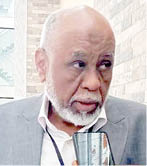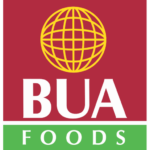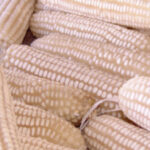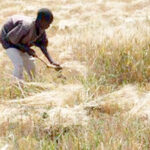Elzubair Ibrahim is a Sudanese farmer, owner of the Nile Sun Seed Company and President of the Sudanese Seed Trade Association. In a recent visit to Nigeria for the WECA wheat conference, Weekend Trust caught up with him in Abuja where he shared the experience of Sudan on wheat production and others.
When it comes to wheat in Africa, Sudan is a major newsmaker. How were you able to achieve this feat?
This was achieved based on the outcome of a research and by the development of the varieties that are heat-tolerant. Before these varieties, the yield was very low because of the effect of the heat, but after the development of the heat-tolerant varieties, those varieties were able to come up with higher yields that are compatible with the international record. And from there, it became a project with many partners. It’s a joint project between the partners—government and the private sector, the research organisations, the seed trade association. The millers and the farmers, of course, were the main players, and they all came together. There were challenges but we managed to come up with the self-sufficiency from 20 to 50 percent before the war. And for the seed, we are 100 percent self-sufficient now.
How many areas of cultivation are we talking about currently in Sudan?
The area started from 150 000 hectares. Now, it is up to 350,000 hectares. That’s the last record we had before the war. However, because of the war, it will go down.
What is Sudan’s production in metric tons?
Our production now is around one million. Our demand is two million.
- Cereal research institute to release 4 new rice, castor varieties
- Access to mechanisation is improving farming in Yobe
I am aware that you are also the president of the Sudanese Seed Trade Association. How well-organised is the country’s seed system?
The seed system in Sudan has three pillars. One pillar is the National Seed Council. This is one unit that is the adviser of the government for all the activities that are related, and there are regulations, of course, that are in place. We have a seed act that is in place, and we have the seed testing or the national seed administration. Those are responsible for the certification and for the testing, giving the certificate of quality. And the other pillar is our association. We represent the private sector seed companies as a whole. So, all these are governed, as I said, by the Seed Act of Sudan.
How would you describe the rate of adoption of certified seeds by Sudanese farmers?
In Sudan, every year we plant something like 25 to 30,000 million hectares, depending on the rain, and the ratio using certified seed is about 14 percent only, very low. But I can say that the awareness among the farmers for certified seed is very high; or let us say that it is increasing every year. Every year the farmer is appreciating the use of certified seed, that is, for developed cultivars, and that goes as well for wheat, sorghum and sunflower.
As a key player in the Sudanese seed industry, what’s the main crop that has enabled Sudan to be a dominant force in African agriculture today?
It’s not one crop. It’s a mix of crops, and sorghum is the biggest. Sorghum is the main food for Sudanese. The main source of animal feed as well. So, we eat it, and we feed our animals with it. Groundnut is also one of the biggest crops, and it has contributed to the export of groundnut and groundnut oil. We also have cotton coming up again. Cotton used to be the backbone of agriculture in Sudan a long time ago. It went down but it’s coming back again. We have sesame, a very good export product. That’s one of the best-selling crops for Sudan.
How is the war in your country impacting agriculture? Do you think it’s going to push you down the ladder?
The war has hit agriculture very hard. It was a very big hit. We lost a lot of areas that are not going to be cultivated this year. Al Jazira is out; Blue Nile is out; White Nile is relatively out. So, that was a big hit. Even western Sudan has also been affected. The war has hit us very hard.

 Join Daily Trust WhatsApp Community For Quick Access To News and Happenings Around You.
Join Daily Trust WhatsApp Community For Quick Access To News and Happenings Around You.


